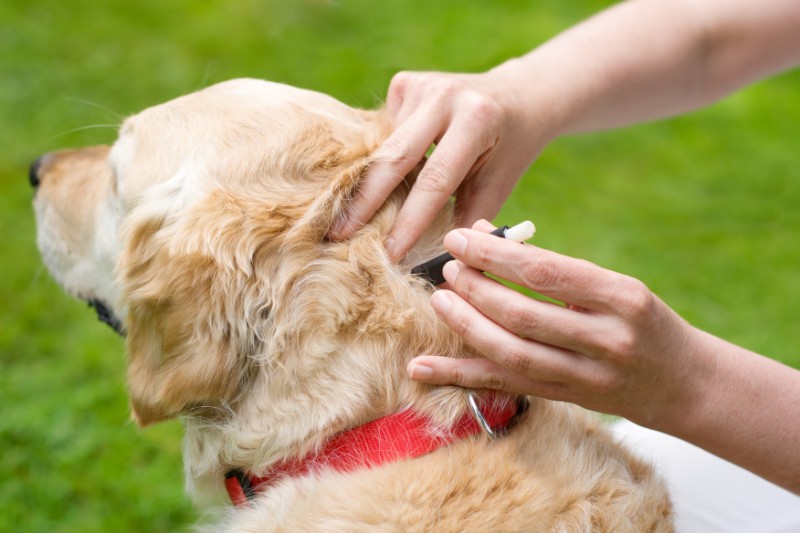Hitchin’ A Ride: The Case for Flea and Tick Prevention

Spring is a notoriously fickle time in Colorado. One day, we’re enjoying temperatures in the 60s, and the next day we’re hit with a snow storm! This variation between cold and warm weather can make it easy to ignore your pet’s parasite prevention. Unfortunately, a little spring snow isn’t enough to keep fleas and ticks at bay for long. Although they may seem inactive during a cold spell, it only takes a few 50 to 60 degree days for parasites to become active again.
Pets most often pick up fleas and ticks outdoors after these parasites drop from other animals onto the ground, grass, or shrubs. Even indoor pets face exposure when people carry the parasites inside on their clothing. Typically, these parasites go unnoticed until they bite your pet, causing itching, skin rashes, and hair loss. Or, as with a tick, you’ve discovered a little round bump on your pet that wasn’t there a few days before.
Dangerous Critters
Fleas and ticks not only damage skin and hair coats, but they also transmit harmful diseases to humans and animals.
- Lyme Disease (tick)
- Rocky Mountain Spotted Fever (tick)
- Tularemia (tick)
- Plague (fleas)
- Ehrlichiosis (tick)
- Cat-Scratch Disease (fleas)
Flea and Tick Prevention All Year Long
Given what we know about these parasites and their ability to survive year-round, continual prevention is your best defense:
- Keep your pet on a monthly flea and tick preventive medication. If you need help selecting one or if your pet needs a refill, please don’t hesitate to contact us.
- If you travel with your pet to warmer climates during the colder months or if you take your pet to dog parks or other public places where dogs associate, we recommend keeping your pet on a preventive year-round. Fleas can be spread by other pets.
- Good grooming habits are essential in the war against fleas and ticks. Brushing your pet’s hair coat daily, and a bath or professional grooming when needed, can help you monitor for parasites, and keep your pet’s hair coat and skin healthy.
- Make your yard and property less hospitable to parasite-carrying wildlife. Do regular landscape maintenance, including, weeding and pruning tall grasses, bushes and branches. Also be sure to cover compost bins and store your trash cans securely.
Flea and Tick Prevention Is Easy!
Not only is parasite prevention important for your pet’s overall health and well-being, it’s something that can easily be integrated into a regular routine. Your veterinarian can recommend the right flea and tick preventive for your pet and your lifestyle. Whether it be a monthly topical treatment or a chewable given once every 90-days, modern flea and tick preventives are more convenient and safer than ever before. As always, please don’t hesitate to contact our staff with any questions or concerns you have about parasites and your pet.



